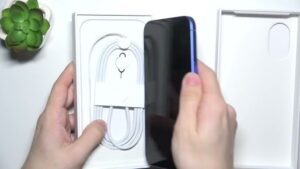Can I use a Tesla charger for other cars? This question has probably crossed your mind if you’re a Tesla owner or considering purchasing an electric vehicle. The good news is, yes, it is possible to use a Tesla charger for other electric cars with a few modifications. While Tesla’s chargers are specifically designed for their vehicles, adapters and third-party solutions are available to make them compatible with other electric car models. In this article, we’ll delve into the details of how you can utilize a Tesla charger for other cars and explore the options available to you. So, let’s get started!
Can I Use a Tesla Charger for Other Cars?
Introduction
In recent years, electric vehicles (EVs) have gained significant popularity due to their environmental benefits and technological advancements. Tesla, known for its innovation in the EV industry, has become a prominent brand with its sleek cars and advanced charging infrastructure. But what if you don’t own a Tesla? Can you still use a Tesla charger to power up your non-Tesla electric vehicle? In this detailed blog post, we will explore the compatibility and limitations of using a Tesla charger for other cars. Let’s dive in!
Understanding Tesla Charging Standards
Tesla vehicles come equipped with a proprietary charging system known as the Tesla Connector or the Tesla Wall Connector. This charging method is often referred to as the Tesla High Power Wall Connector (HPWC) and is specifically designed for use with Tesla cars. The HPWC provides faster charging speeds compared to standard Level 2 chargers, allowing Tesla owners to recharge their vehicles quickly and conveniently.
Can non-Tesla Electric Vehicles Use a Tesla Charger?
While Tesla chargers are primarily intended for Tesla vehicles, it is technically possible to use a Tesla charger to charge other electric vehicles. However, several factors need to be considered before attempting to use a Tesla charger for a non-Tesla EV:
1. Connector Compatibility
Tesla vehicles use a unique connector called the Tesla proprietary connector or the Tesla Mobile Connector. This connector is not compatible with standard charging connectors used by other electric vehicle manufacturers, such as the SAE J1772 connector found in most non-Tesla EVs. Therefore, without an adapter or modification, it is not possible to directly connect a non-Tesla electric vehicle to a Tesla charger.
2. Voltage and Amperage Requirements
Tesla chargers are designed to deliver a specific voltage and amperage optimized for Tesla vehicles. These charging specifications may not align with the requirements of other electric vehicles. Non-Tesla EVs usually have different voltage and amperage requirements, which may prevent them from efficiently utilizing a Tesla charger. Using a charger with incompatible voltage and amperage may result in slower charging speeds or potential damage to the non-Tesla vehicle’s on-board charging system.
3. Software Protocols
Apart from physical compatibility, Tesla chargers also rely on specific software protocols that communicate with Tesla vehicles. These protocols enable features like charging status monitoring, power adjustments, and over-the-air updates. Non-Tesla EVs may not be equipped with the necessary software to communicate with Tesla chargers effectively. As a result, using a Tesla charger for a non-Tesla EV may not provide access to these advanced functionalities.
4. Warranty and Liability
Using a Tesla charger with a non-Tesla electric vehicle may void the warranty of the EV and potentially pose safety risks. Manufacturers typically recommend using charging equipment specifically designed for their vehicles to ensure optimal performance, reliability, and safety. Additionally, in some cases, using unauthorized charging equipment could lead to liability issues in the event of an electrical fault or malfunction.
Alternative Charging Options for Non-Tesla EV Owners
If you own a non-Tesla electric vehicle, there are several alternative charging options available to ensure you can charge your EV efficiently and safely:
1. Manufacturer-Provided Charging Equipment
Most electric vehicle manufacturers provide their own charging equipment tailored to their vehicles. These chargers are designed to meet the specific voltage, amperage, and connector requirements of their EV models. Using the manufacturer-provided charging equipment ensures compatibility and minimizes the risk of warranty voids or safety concerns.
2. Public Charging Networks
Public charging networks have been rapidly expanding, offering charging stations compatible with a wide range of electric vehicles. Networks like ChargePoint, EVgo, and Electrify America provide access to Level 2 and DC fast chargers, ensuring EV owners can charge their vehicles while on the go. These charging stations typically utilize standard connectors, allowing non-Tesla EV owners to conveniently recharge their vehicles.
3. Universal Charging Standards
To ensure interoperability and compatibility across different electric vehicle brands, several universal charging standards have been developed. The most common universal standard is the SAE J1772 connector for Level 2 charging, widely supported by non-Tesla electric vehicles. Additionally, for DC fast charging, the CCS (Combined Charging System) and CHAdeMO standards are prevalent. These universal charging standards enable non-Tesla EV owners to use a vast network of charging stations without any compatibility issues.
While it is technically possible to use a Tesla charger for other electric vehicles, several limitations and compatibility issues should be considered. The unique Tesla connector, different voltage and amperage requirements, and proprietary software protocols make it challenging to use a Tesla charger seamlessly with non-Tesla EVs. To ensure optimal charging performance, warranty compliance, and safety, it is recommended to use manufacturer-provided charging equipment or utilize public charging networks that offer universal compatibility. As the electric vehicle infrastructure continues to evolve, it is essential for EV owners to understand their specific charging requirements and explore the available charging options.
Can You Charge a Non Tesla with a Tesla Charger? Lectron Tesla to J-1772 Adapter
Frequently Asked Questions
Can I use a Tesla charger for other cars?
No, Tesla chargers are specifically designed for Tesla vehicles and are not compatible with other car brands.
What makes Tesla chargers different from other chargers?
Tesla chargers use a proprietary charging connector called the Tesla Connector, which is different from the standard charging connectors used by other car brands. This connector is specifically designed to work with Tesla vehicles, ensuring optimal charging performance and safety.
Is it possible to adapt a Tesla charger for use with other cars?
While it may be technically possible to adapt a Tesla charger to work with other cars, it is not recommended. Modifying or using adapters to connect a Tesla charger to non-Tesla vehicles can be potentially unsafe and may void any warranties. It is best to use the charger specifically designed for your car brand.
Can other electric cars use Tesla Superchargers?
No, Tesla Superchargers are exclusively designed for Tesla vehicles. These high-powered chargers are not compatible with other electric cars. Superchargers can deliver a higher charging rate specifically optimized for Tesla vehicles, which may not be suitable or compatible with other brands.
Are there any alternative charging options for non-Tesla electric cars?
Yes, there are several charging options available for non-Tesla electric cars. Most electric car manufacturers offer their own charging solutions, including home chargers and public charging stations. Additionally, there are third-party charging networks that provide charging infrastructure compatible with multiple electric car brands.
Final Thoughts
In conclusion, it is not recommended to use a Tesla charger for other cars. Tesla chargers are specifically designed to be compatible with Tesla vehicles and may not work properly or could even damage other electric vehicles. Each car manufacturer has its own charging system and requires a compatible charger. It is important to use the correct charger for your specific vehicle to ensure safe and efficient charging. Therefore, when it comes to charging other cars, it is best to use chargers that are specifically designed and approved for those vehicles. So, if you are wondering, “Can I use a Tesla charger for other cars?” the answer is no.



